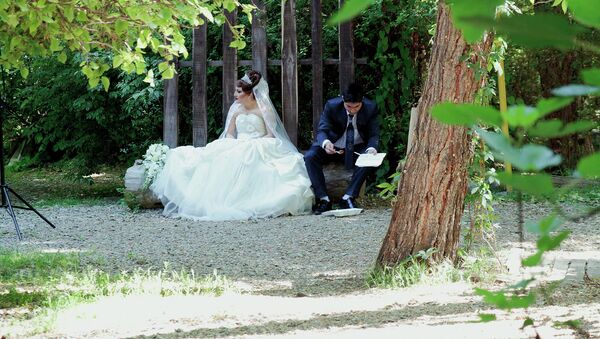Iran's Ministry of Youth Affairs and Sports announced an official online matchmaking service, Hamsan Gozini (Match Choosing) as part of an initiative to increase the number of marriages in a country where young people increasingly stay single.
In Iran, marriage is generally handled as a matter between the families of the groom and bride to be, with the parents of the groom usually obliged to pay a dowry. The new service allows people to meet for the purpose of marriage without breaking the country's Islamic law, which prohibits unmarried men and women to meet without the intention of marriage as adultery.
"The system works like this: the applicant (young man or woman) registers and provides their data as well as information regarding their preferences regarding the desired partner. Then professional psychologists analyze their personality. And then, based on test and results of the analysis they are provided the candidates for further contact. The candidate information is not published on the site," one of the project's founders, a representative of the "House of Youth Hope" organization, Said Yazdani told Sputnik Persia.
After the two people are given information about each other, they can request to meet, after which the experts meet and consult each person individually, and only then the man and woman can meet. If they decide that they are not fit for each other, the experts continue working with each person again to find new matches.
Acording to Hadi Zayeri, Islamic scholar and lecturer at Tehran University, part of the issue is that people are increasingly getting married at an older age, together with media influence and socio-economic factors playing a role.
"As a person with conservative views I believe that issues regarding marriage should be settled through the family, parents and relatives as it is more right and trustworthy. But on the other hand, it cannot be denied that for many young people this is a problem," Zayeri told Sputnik Persian.
"This is especially relevant for big cities. That's why the necessity of creating such a project is tested by time. This project was above all, backed and supported by educated people. Possibly for this group of people, the issue of starting a family became somewhat burdensome on the account of certain circumstances," Yadzani added.


